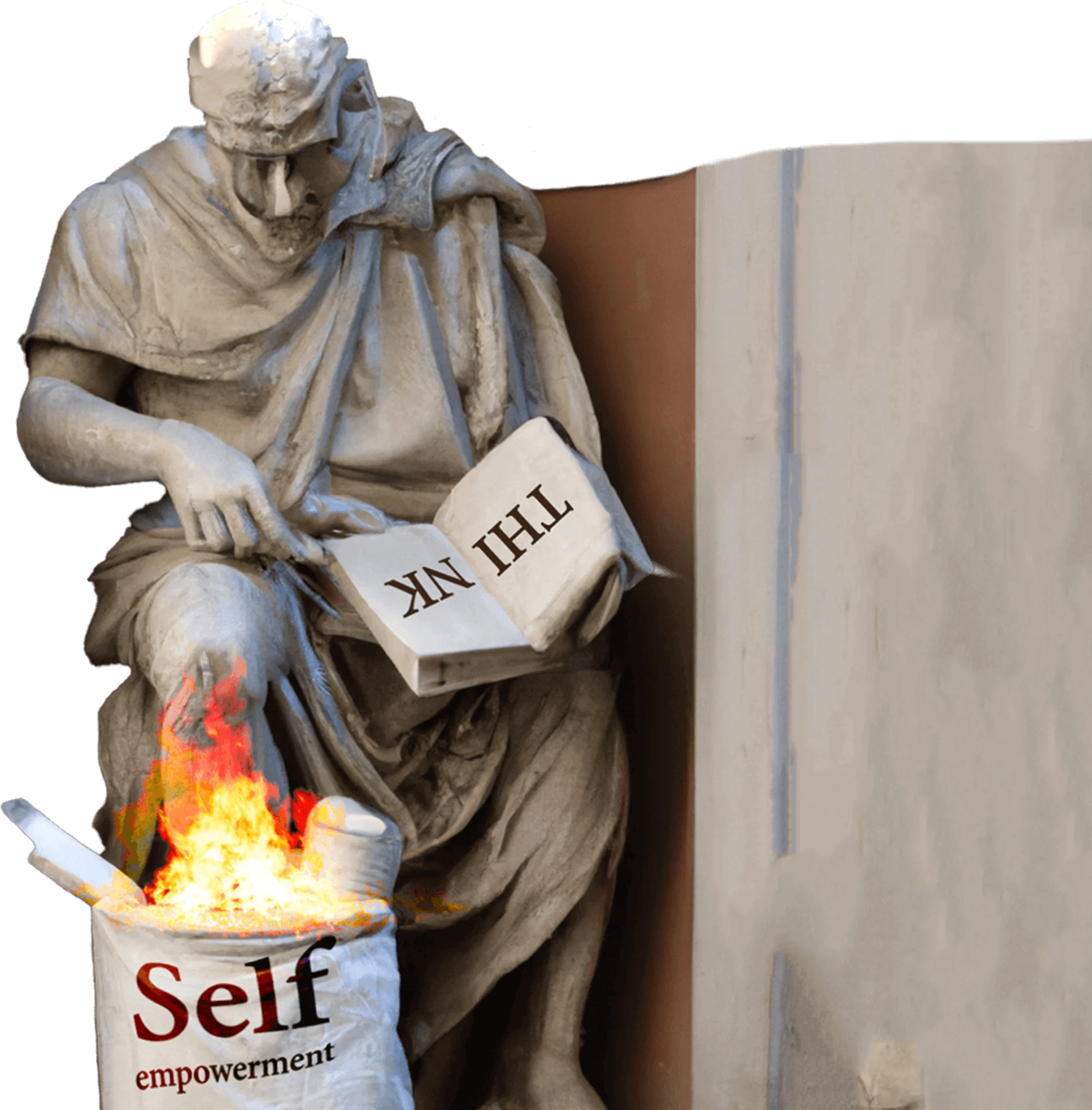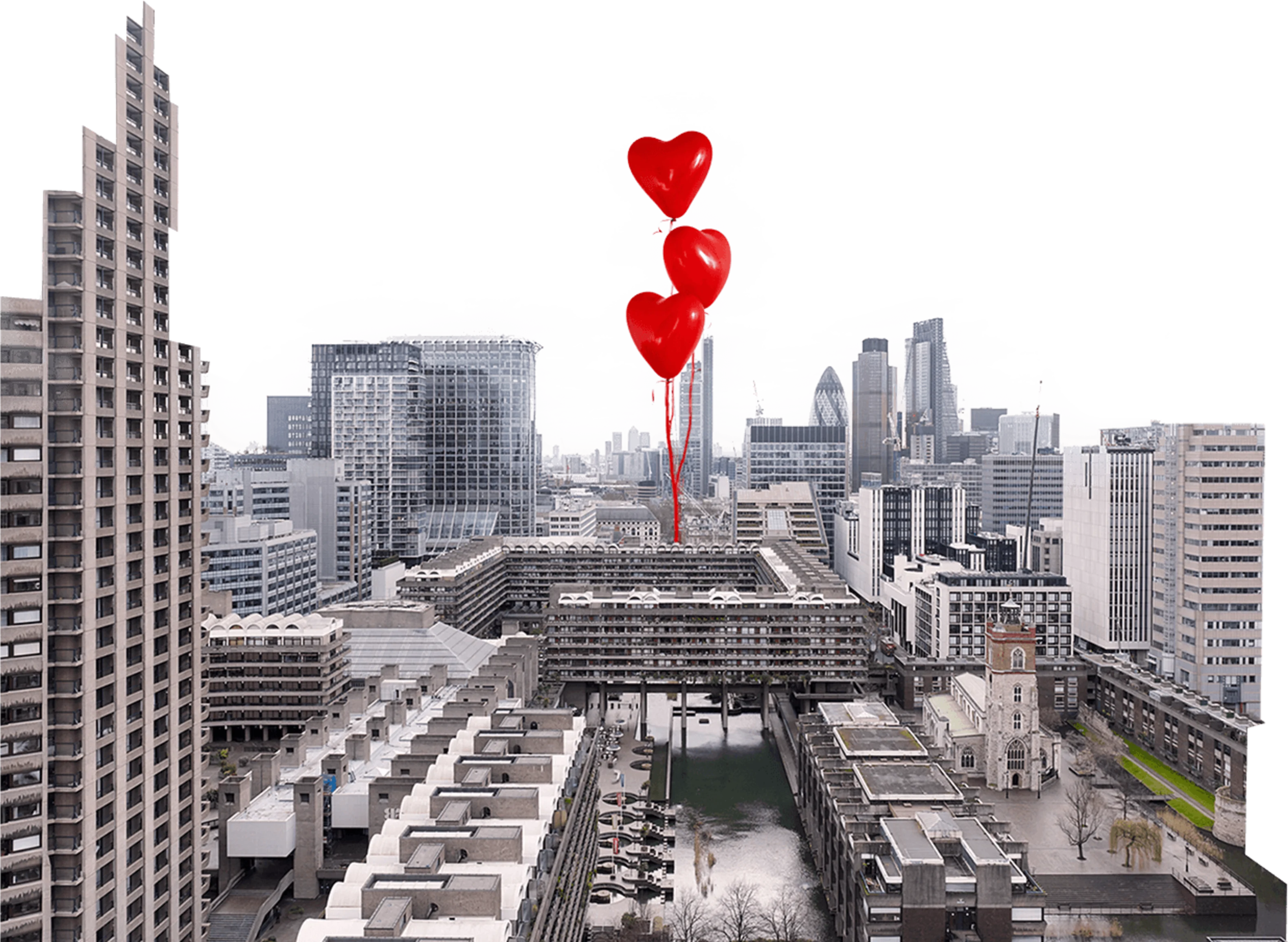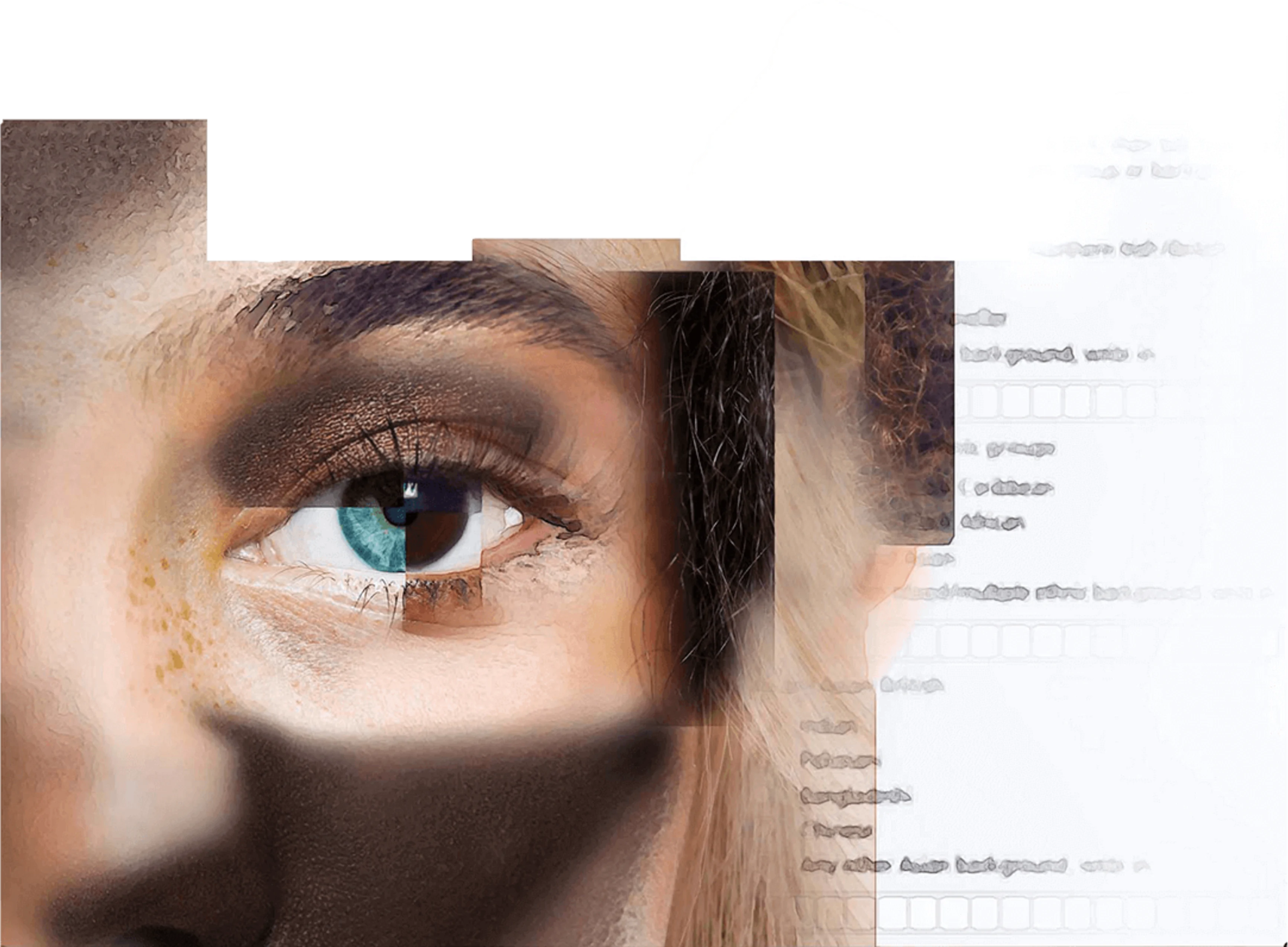What happened when I ditched self-empowerment and embraced critical thinking


The remains of what was once the temple of Vesta lie to the south of the Roman Forum. For centuries in the centre of that circular temple blazed the sacred flame. It was believed that the entire empire depended on this fire to the extent that if one of the priestesses charged with its care failed and the flame was extinguished, she was buried alive. Then Rome declared itself Christian, the persecuted became the state religion and what had been one of its most ancient beliefs until that time faded away. Some believe the very emperor took it upon himself to extinguish the flame and shut down the temple. Even Celia Concordia, the last Vestal, eventually converted to Christianity a decade later.
We are no strangers to change. History is full of such moments where small changes suddenly become an abrupt event that changes everything. What has shifted is the speed at which such changes happen and the way we deal with them. Toffler was already warning in the 1980s about the impact of this increased speed and how important it would be to teach students to learn, unlearn and relearn. Only in my lifetime has Pluto ceased to be a planet (it became a dwarf), Homo sapiens and Neanderthals have been found to be contemporaries, and MDMA and psilocybin are about to become the next trendy therapies.
This summer, while walking through the Roman forum, I could not shake off the feeling that, despite the return to this new normality between ideological fights, economic crisis, scientific debates, and aliens ruling the world, we were in one of those moments. The pillars that supported our reality were collapsing, and the fear of uncertainty was turning us into a more dogmatic and polarised society.
The philosopher Victoria Camps not long ago said in an interview that we live in a time of little doubt. It seems that it has lost prestige. In times as accelerated as ours, we seek certainty and firm convictions. People who doubt are seen as indecisive, unpredictable, and incapable of leading. The new gurus, now called influencers, tell us it's all about empowerment and positive thinking: "Trust in yourself and you will make it, don't hesitate, focus on your goals, go to the gym, be light, upbeat, don't overthink it and stay away from any toxic people" (i.e. those who challenge you).
We prefer the comfort of conviction over the discomfort of doubt. We listen to opinions that make us feel good, rather than ideas that make us think too hard.
Everywhere you go, you hear echoes of the same message as if it were some corporate ethics marketing campaign designed for productivity (Oh, capitalism!); Doubt can be paralysing, sure. But too much self-indulgence doesn't help us either. It is turning us into an increasingly simplistic and, if possible, even more, narcissistic society. This cultural message that tells us to be confident but does not teach us to rethink encourages us to build super egos instead of healthy egos and move through life like little emperors projecting self-confidence. Doubt, which used to be the basis of critical thinking, has become a tool of polarisation. The amount of information we are exposed to has not made us wiser, it has made us more biassed.
Without a dose of critical analysis, this emphasis on personal empowerment, rather than a demonstration of strength, seems to hide tremendous collective anxiety. Letting go of ingrained beliefs can be difficult; we associate them with our identity and in a world that changes at an increasingly vertiginous speed, we become attached to them like a stranded person to a board.
And besides, we are all a bit biassed. We see the world through certain lenses and are constantly reinterpreting it according to our experience; The fact that there are subjective truths does not imply that there are no objective truths without which there would be no consensus of reality; As a journalist said in an article I recently read: "a stadium full of sick people is one of them"- referring to the objective truth of covid transmission.
The problem comes when the fear of losing our identity makes us contort the truth to adapt it to what we want to hear. Psychologists call it confirmation bias, this pernicious tendency to select and give more credibility to information that confirms our beliefs or actions; It is our way of reducing the discomfort we feel when an event or some idea clashes with our beliefs. In our need for certainty, we try to convince ourselves (and others) that we are right. We don't seek to know; we want to reassert ourselves. And the more people think like us, the more we assert ourselves.
When none of the predictions of the digital cult QAnon came true, many of its followers didn't care, they flipped the narrative and continued to believe that Trump was the saviour of the world. In the words of Adam Grant: "We prefer the comfort of conviction over the discomfort of doubt. We listen to opinions that make us feel good, rather than ideas that make us think too hard." By assuming that we don't have all the facts and that we may be wrong, we must accept a degree of uncertainty and that makes us uncomfortable; In the realm of unpredictability, we feel we lose control.

We know that lies have always been a weapon of political manipulation and that much of the information circulating through the networks only seeks to create impact and manipulate emotions, feeding existing fears and prejudices and creating more polarisation. But, faced with the feeling of threat, we withdraw into ourselves, and fake news feeds on our need for certainty. We want security, even if it is based on an illusion, to the point of believing that the American democratic party is a Satanic cult and Hilary Clinton is the antichrist. Even the Dalai Lama was considered part of the evil Cabal. It is one thing to disagree with a political party; it is quite another to have extreme voices in the media amplifying the “Us" versus "Them" narrative, fuelling mistrust among one another and turning fear of uncertainty into a messianic movement.
To question ourselves does not necessarily imply changing our values; it means being capable and humble enough to change our beliefs when the facts we took for granted turn out not to be accurate or when new data appear. It does not make us weaker; it makes us wiser. An active belief always rethinks itself; Critical thinking does not mean a lack of convictions, it means being open to more; In other words, being open to being wrong.
Moments of uncertainty, when chaos breaks our schemes, are also opportunities to rethink. Insecurity allows us to raise questions. And we should. In a world that demands expediency, we seek to have an opinion formed as quickly as possible, consuming information without stopping to think where it comes from and reading articles over the top to have an opinion that reinforces our belief system.
We live in societies that encourage us to be efficient but not to think; Reflecting requires time, it involves listening and in our fast-paced lives, we forge opinions through tweets in which there is no room for arguments. And to top it off, with the number of stimuli we are subjected to daily, we are losing the ability to concentrate.
We live in times where choosing to go beyond polarisation is the most radical act. Relativizing, accepting that reality is full of nuances and paradoxes, seeing things in their complexity and being able to live with a certain degree of ambiguity are what give us the tools to face moments of great uncertainty. Grey takes courage.
“The believer will open his mind to the truth on condition that it conforms to his preconceived ideas and desires. Faith, on the other hand, is an unreserved opening of the mind to the truth, whatever it may be.”
Allan watts tells us in his book the wisdom of insecurity.
Insecurity, used as a tool of knowledge, is creative. When all our questions collide with reality, new ideas emerge. It's the path that every innovator has followed; Stepping into the unknown, our senses are sharpened. A strength arises when instead of holding on to old beliefs, we allow them to grow, evolve and live on in other ways.
Stepping foot in Rome is like entering into a long conversation with the history of its beliefs. There is so much beauty in its decay that it is almost provocative; It reminds us that we are full of incomplete truths in which we fully trust; That as much as we need structures to sustain us, life ultimately is impermanent, and that the sacredness of its myths is not in its truths but the space there is to keep discovering them, to keep interpreting them. The temple of the vestals may no longer exist except in ruins, but the fire that has been lighting us for centuries continues to burn in each of our homes, whether in the candles we light, the bonfires around which we tell stories or the fireplaces that keep us warm.
Written by
Maite OxfordGraduate in Sociology. Writer. Wanderer. Interested in cultural and social issues, I'm intrigued by the nature of everyday human interactions.
Read next
Learn to love modern architecture: it's not as bad as you think

Adam Ross
Modern multiculturalism: We can no longer confine ourselves to a single identity

Maite Oxford
“Productivity Culture” isn’t living up to its promises

Annie Hansson
Weekly emails
Get more from Maite
The Fledger was born out of a deep-seated belief in the power of young voices. Get relevant views on topics you care about direct to your inbox each week.
Write at The Fledger
Disagree with Maite?
Have an article in mind? The Fledger is open to voices from all backgrounds. Get in touch and give your words flight.
Write the Contrast